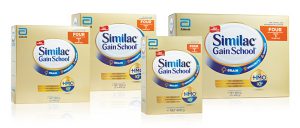Parents should know it by now, babies are cute and cuddly, but they can also be at times, yucky. If you are a new parent then you would’ve read and seen the numerous articles and videos warning you about projectile vomits, spit ups, and even excessive poop. While some of these situations might be funny and would make for great anecdotes, some can be worrisome and even downright scary.
So when are baby tummy troubles normal and when is it time to visit your Pediatrician? Well, listen up parents. Here’s a rundown of some common gastrointestinal problems babies typically face:
Reflux
For most babies, the digestive process is typically slow, as their esophageal sphincter is still developing and maturing. Babies’ stomachs might take weeks to get into their own rhythm or develop a normal digestive pattern. So until their stomach gets into step, the milk that your baby drinks could stay in her stomach longer than normal and may come right back up. When this happens, it is called reflux and is considered as one of the most common digestive problems parents witness in their infants.

See your doctor if:
Reflux is not a serious medical condition and could go away on its own once your baby is between 4 and 12 months old. However, you should see your doctor if you observe the following in your child:
- Poor appetite
- Slow weight gain
- Persistent hiccups
- Congestion and breathing problems
You can also try these tips to relieve your baby of reflux:
- Burp your baby as often as you can and after every feeding.
- Try to keep your baby in an upright position during feeding. Also, try to do so for at least half an hour after she feeds.
Colic
Colic refers to uncontrollable and seemingly inconsolable crying in otherwise healthy babies. Your baby can be considered colicky if he’s younger than 5 months, cries for more than three hours in a row on three or more days a week, for at least three weeks. Although colic is not considered a disease, it could be quite stressful for both parents and even babies.
Colicky babies might also typically show signs of a gassy tummy. While gas does not cause colic, colicky babies are prone to be gassier because of the amount of air he swallows whenever he cries.
See your doctor if:
- You’ve noticed that your baby’s crying bouts have gotten worse. Your doctor can assess your baby and rule out other possible causes, such as other intestinal problems or infections.
- Your baby gets other symptoms, such as fever, vomiting, or bloody stools. These symptoms are not caused by colic.

You can also try these tips to relieve your baby of colic:
- Try to shift your baby’s position a number of times during her bouts of colic. Some parents recommend keeping your baby lying on her stomach — which can also help with her gassy tummy.
- Consult your doctor if it would be possible to give her gripe water or anti-gas drops. Although both are not proven to relieve colic, it could still help soothe your baby’s discomfort.
Vomiting
It can be quite normal for babies to spit up, but every parent should know the difference between spitting up and vomiting. Spitting up is the easy flow of your baby’s contents out of the mouth, which normally coincides with her burp. On the other hand, vomiting is the forceful throwing up of her stomach contents through the mouth.
For babies, the most common cause of vomiting is either a bacterial or viral infection. Although the illness could start with a sudden vomiting spell that could be accompanied by a fever or even a bout of diarrhea. The illness should run its course and resolve on its own in two to three days, although it might still take a few more days for your baby’s tummy to settle. However, you should still be wary of other symptoms.
See your doctor if:
- A drop in the number of wet diapers
- Dry mouth
Both are symptoms of dehydration and in such cases, you should seek out immediate medical care for your child.
You can also try these tips to relieve your baby if she has vomited a number of times:
- Continuously offer her milk or feedings to prevent dehydration.
- Try to offer your child a spoonful of an electrolyte solution such as Pedialyte (try to consult your doctor before doing so) if your child does not want to drink her breast or formula milk.

Diarrhea
Diarrhea in babies is typically caused by a virus, the most common type of which, is the rotavirus. If your baby’s diarrhea is caused by rotavirus, the best thing you can do is ensure that she’s well hydrated.
See your doctor if:
- If your baby has diarrhea for two to three weeks
- Your baby is fussy and cries during bowel movements
- Small amounts of blood or mucus in the stool
- Appearance of rash
You can try these tips in handling your child’s bout of diarrhea:
- Ensure that your child is well hydrated throughout the day
- Consult your pediatrician if you should watch your diet if you’re breastfeeding, or if you should switch to another formula brand if you’re bottle-feeding.
Constipation
Constipation or hard stool is quite a common, uncomfortable problem for babies, which normally occur once they start eating solid foods or around their first birthday.
See your doctor if:
- Your child is very uncomfortable
- Your child is in pain or even cries during bowel movements
- Amounts of blood in the stool
You can try these tips to relieve your child of constipation:
- Cut down on rice cereal in your baby’s meals
- Include fiber-rich foods in her diet
Your child will grow out of his/her reflux and colicky phase once he/she reaches the toddler/preschooler years, although he/she might still be prone to certain stomach issues such as vomiting, diarrhea, constipation, and even the stomach flu once he/she starts schooling.

Give your child the milk fortified with prebiotics that stimulate the growth of good bacteria on the digestive tract, thereby protecting your child from common tummy troubles — which Similac GainSchool has. Aside from prebiotics, Similac GainSchool also contains a unique combination of DHA, Lutein, and RRR (Natural) Vitamin E help boost brain function. At the same time, Similac GainSchool contains protein for growth and development, calcium for strong bones and teeth, nucleotides for normal cell function and replication, anti-oxidants that help protect cells, and vitamins B12, D, Folic Acid, and Zinc for immunity.
You can easily get your child’s Similac GainSchool anytime, anywhere, thanks to Lazada. Busy moms can just sign up, log in, and cart their kiddo’s milk via the Lazada site or Lazada app, and their Similac GainSchool will be delivered straight to their doorsteps. Definitely a big help for mamas!
*The tips and information in this article should be taken as an opinion. Always seek the direct advice of a medical professional for any health issues or concerns. Plus, the use of any milk products for children 3 years old and up should always be upon the recommendation of your Pediatrician.
References: Parents, MomJunction, BabyCenter





